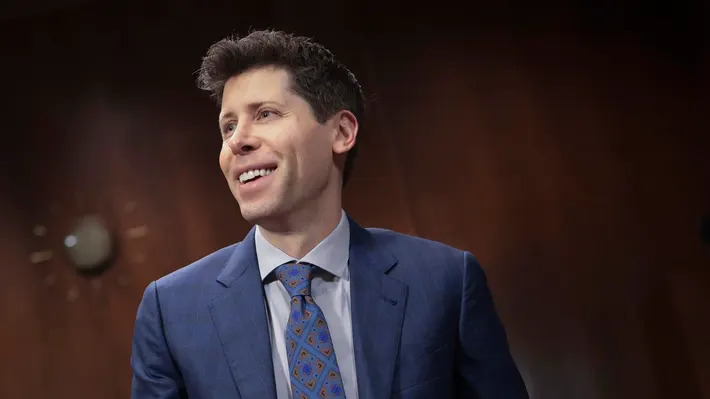Sam Altman’s Journey: How a Young Coder Transformed into a Tech Powerhouse

I am a law graduate from NLU Lucknow. I have a flair for creative writing and hence in my free time work as a freelance content writer.

I am a law graduate from NLU Lucknow. I have a flair for creative writing and hence in my free time work as a freelance content writer.

I am a law graduate from NLU Lucknow. I have a flair for creative writing and hence in my free time work as a freelance content writer.
In a rapidly evolving digital landscape, the need for secure and private identification is becoming increasingly crucial. Recognizing the potential challenges posed by advancing AI technologies, OpenAI CEO Sam Altman has taken the initiative to launch Worldcoin (WLD), a groundbreaking cryptocurrency project.
Worldcoin seeks to redefine the digital identification process by providing users with a unique World ID, verifying their real-human status while preserving their anonymity.

In this blog, we will explore the core features of Worldcoin and its potential implications on privacy, economic equality, and Universal Basic Income (UBI).
Worldcoin introduces the concept of World ID, a digital passport that serves as a verification of a user’s real-human status. As AI chatbots and generative AI technologies gain popularity, distinguishing between human users and AI bots on the internet becomes increasingly challenging. World ID aims to address this issue by offering a secure and anonymous way to prove one’s human identity online.
To obtain a World ID, users must undergo an in-person biometric screening at one of Worldcoin’s ‘Orbs.’ These Orbs, silver spheres about the size of a soccer ball, are strategically placed in various locations worldwide.
Also Read: Is Twitter changing its logo to an ‘X’?
During the screening process, users undergo a face and iris scan, ensuring the validity of their identity. Upon successful verification, users are rewarded with the WLD token – a tangible acknowledgment of their human status.
With the official launch of Worldcoin, the WLD token witnessed a surge in trading activity. The cryptocurrency’s value soared to an impressive $3.58 from its initial value of $1.70. Major exchanges like Binance quickly listed WLD, and in just a few hours, $145 million worth of WLD tokens were traded. However, as with any new crypto project, there were fluctuations, and the stock price later experienced a 29.4% decline.
While the project has already established 11 Orb locations in the US, including Los Angeles, New York, Miami, and San Francisco, the founders have ambitious plans for global expansion.
Worldcoin aims to set up 35 Orb sites in 20 countries to make World ID accessible to users worldwide. Remarkably, even during its beta phase, the project attracted over 2 million scanned users globally, reflecting the demand for a secure digital identification solution.
The Worldcoin project is not solely focused on digital identification; it also envisions broader societal implications. The founders view it as a stepping stone towards economic equality, democratic distribution of funds, and a potential path to Universal Basic Income (UBI).
By offering a reliable solution to differentiate humans from AI online, Worldcoin opens doors to increased economic opportunity for real individuals. With enhanced security and privacy measures, World ID could protect users from malicious cyber attacks on their identity, fostering a safer digital environment.
Furthermore, Worldcoin’s vision aligns with the concept of Universal Basic Income (UBI), which proposes providing a basic financial support system to all citizens. The project aims to explore how AI technology, through cryptocurrencies like WLD, could pave the way for a sustainable AI-funded UBI program in the future.

I am a law graduate from NLU Lucknow. I have a flair for creative writing and hence in my free time work as a freelance content writer.